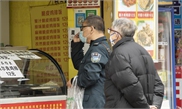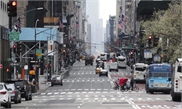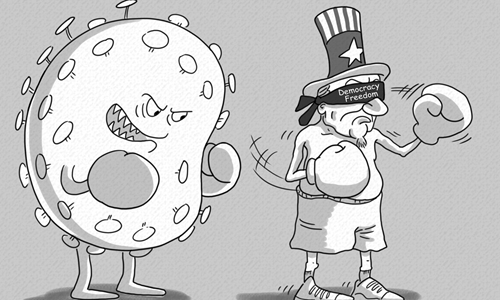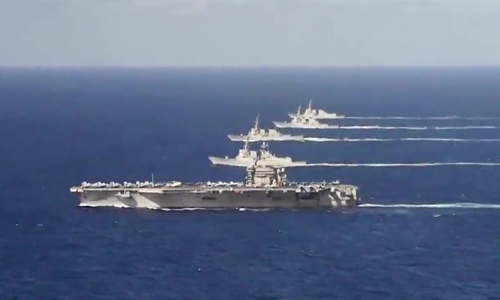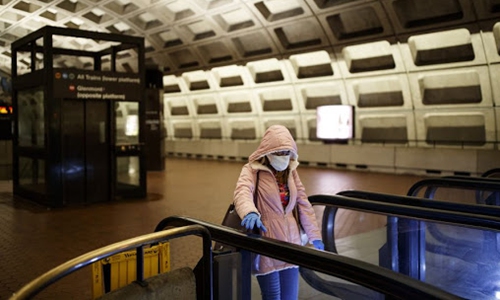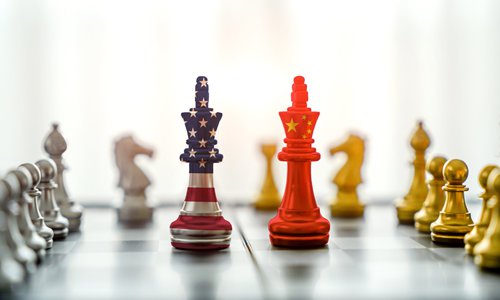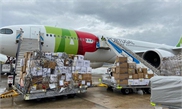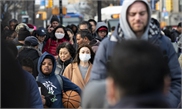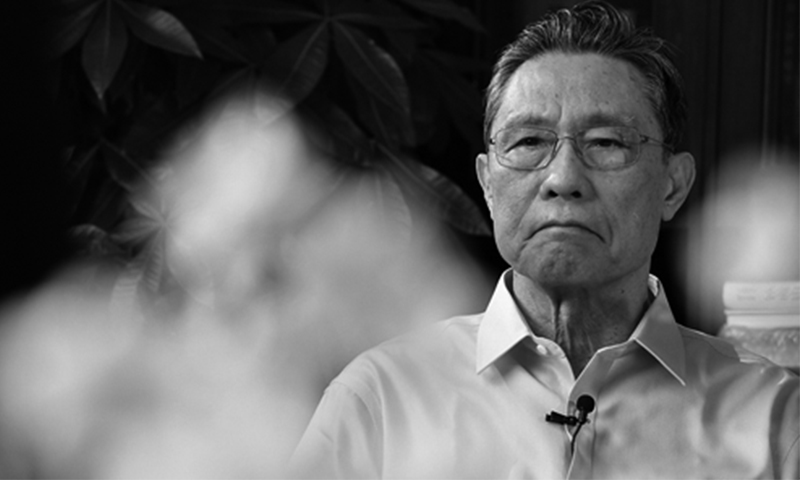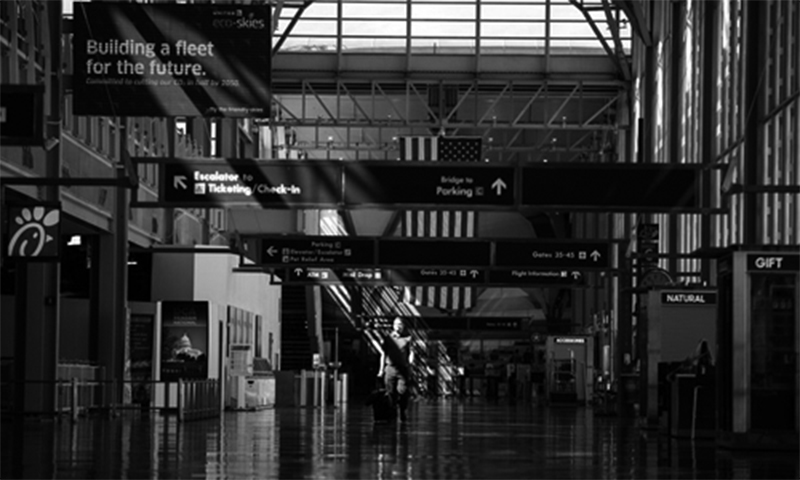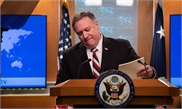https://www.thestar.com.my/news/nation/2020/04/07/rm10bil-a-boon-for-smes-and-workers?jwsource=cl
https://youtu.be/wGzVdeA3b0g
80% of financial help will be additional wage subsidies for employees
This is the second stimulus package that the government has announced within 10 days.
The first addresses the plight of the underprivileged and the middle class caught in dire straits due to the coronavirus pandemic.
The latest package of measures, dubbed the Additional Prihatin, is aimed at assisting SMEs in riding out the Covid-19 storm.
Of the RM10bil, almost 80% will be for additional wage subsidies for those drawing RM4,000 and below monthly.
This is in response to the pleas from many businesses and commerce groups who asked for more financial help.
This is an addition to the RM5.9bil wage subsidy in the RM250bil Prihatin package announced on March 27.
The remaining RM2.1bil in the second package will be in the form of special grants for eligible micro SMEs, with 700,000 of them expected to each receive RM3,000.
Prime Minister Tan Sri Muhyiddin Yassin (pic) hoped that the additional RM10bil would assist in easing the financial burden of the SMEs and ensure that all their workers remain employed.
“SMEs are the backbone of Malaysia’s economy and the sector accounts for more than two-thirds of the number of jobs in the country and close to 40% of the economy.
“It is therefore vital for us to ensure that SMEs continue to be resilient and sustainable in facing the economic stress and challenges that we all experiencing now,” he said in a televised address yesterday.
The wage subsidy is expected to benefit about 4.8 million SME workers who earn up to RM4,000 a month.
Companies with more than 200 employees will be eligible for a RM600 wage subsidy for each worker, while those that have between 76 and 200 employees will receive the RM800 subsidy.
Companies that employ between one and 75 employees will receive RM1,200 for every worker.
The wage subsidy is for three months and is meant for employers whose companies have registered with the Companies Commission of Malaysia (CCM) or the local authorities before Jan 1 and are registered with the Social Security Organisation (Socso).
It also comes with a condition that employers must retain their staff for at least six months – the three months during which the subsidy is paid and the three months after that.
The government has also abolished the 2% interest under the RM500mil microcredit schemes offered by Bank Simpanan Nasional.
The easy loan scheme for micro-companies is extended to Tekun Nasional with a maximum loan limit of RM10,000 per company at 0%. A funding of RM200mil has been prepared for this purpose.
Businesses can only apply for either one.
Muhyiddin also announced that landlords of private premises who reduce their rental rates by at least 30% from April to June this year will qualify for tax deductions.
He made a plea to landlords to reduce their rental rates during the period and for three months after it ends.
The tax deductions are equivalent to the amount of rent they reduce for three months, subject to the condition that the reductions are at least 30% during the period.
Muhyiddin added that SMEs in premises owned by government-linked companies (GLCs) will have their rental waived or they will enjoy discounts on the rental.
He thanked GLCs such as Mara, Petronas, Permodalan Nasional Bhd, PLUS, UDA and several state-owned companies that have agreed to give these concessions.
“We are also allowing a 25% reduction in the foreign worker levy to all companies whose worker permits end between April 1 and Dec 31. However, this is not applicable for domestic helpers,” he said.
Muhyiddin also urged licensed moneylenders to emulate banks by offering a moratorium for SME instalment payments for six months beginning April.
In another win-win measure, the government is encouraging consultations to be held between employers and employees on employment terms, including the options of pay cuts and unpaid leave during the enhanced movement control order (MCO) period.
“Employers and employees can now refer to the Labour Department for advice to resolve any issues,” he said.
There is also an automatic 30-day moratorium from the last day of the enhanced MCO for companies to submit statutory documents to CCM.The deadline for companies to submit their financial statements has been extended for three months from the last day of the enhanced MCO.
This applies to companies whose previous financial years ended between Sept 30 and Dec 31 last year.
The companies must apply for the extension and no late submission fees will be imposed.
Source link
Stimulus package a welcome relief
 | |||
| Source: Samenta - Averest SME survey |
PETALING JAYA: While the additional stimulus for small and medium enterprises (SMES) is a welcomed relief, response from the industry has been somewhat tepid as these additional measures will likely only be sufficient to help soothe the pain until the end of the movement control order (MCO) in mid-april.
If the MCO is extended, the supplemental stimulus will not be enough to keep businesses going and the likelihood of them shuttering their operations will still be on the cards as they brace for a recession.
In an announcement yesterday, the Prime Minister presented an additional stimulus of Rm10bil to ease the financial burdens of the SMES following calls from the industry to provide greater support for the business community.
SME Association of Malaysia president Datuk Michael Kang took the stimulus positively but noted that there were other issues not addressed in yesterday’s announcement.
“We welcome these measures. But the measures are not really enough. They should allow SMES to do business to get their income and cashflow during this MCO period. But if the MCO is extended, these measures are definitely not enough,” he said.
For now, though, Kang is just grateful that the industry, at the very least, “got something”.
“This shows that the government is understanding and they are trying to help so that the SMES can survive and can retain as many jobs as possible.
“It didn’t fully meet our expectations. But of course, we proposed a lot of things,” he added.
One of the important issues which was not addressed in the stimulus is statutory payments, which many employers have said are among the main burdens on their monthly cashflow. Many business associations had asked for a waiver on EPF contributions – or a deferment till year end – and a deferment of monthly tax deductions to the end of the year.
“We hope this will be addressed later,” said Kang.
He also pointed out that there is a lack of impetus to stimulate the economy, moving forward, and this would continue to affect market demand post-mco, making it even more difficult for businesses to get back on their feet.
The new package saw an increase in allocation for the wage subsidy programme to Rm13.8bil from Rm5.9bil previously, with changes made to the payout amount based on the number of workers in a company.
For companies with more than 200 employees, a subsidy of RM600 per employee is maintained and the maximum number of workers eligible for subsidies will be increased from 100 to 200 workers.
For companies with 76 to 200 employees, the company will receive a subsidy of RM800 per employee while companies with up to 75 employees will receive a subsidy of RM1,200 per employee.
The expanded initiative is expected to benefit 4.8 million workers.
Special grants have also been doled out to micro businesses, which make up the largest portion of SMES and are the hardest hit.
The government has also incentivised owners of private premises to reduce rental rates for the duration of the MCO plus, three months after, with tax deductions. While this will help businesses in the services industry, particularly those in food and beverage, retail and accommodation – which make up about 63.9% of the services-based SMES – it remains to be seen if landlords will indeed take the bait.
Meanwhile, Ambank Group chief economist Anthony Dass said the additional stimulus measures supporting the SMES is positive, given that many are experiencing tight cashflow due to no or minimal sales revenue.
“However, the tight cashflow is not just because of the MCO. Businesses were also affected by the poor implementation and policy inconsistencies in the past. Besides, they were affected by the trade war and other domestic challenges.
“Even if the MCO is lifted by midapril or end April, demand is expected to be weak for some time due to travel aversion and social distancing.
“The drop in consumer and corporate spending will intensify the adverse chain reaction that will fuel the collapse of micro businesses, especially the younger and smaller businesses, due to their highly vulnerable situation,” he said.
Not every small business is equipped to survive this downturn, said Dass. And because small businesses contribute disproportionately to job loss during recessions, policy responses are necessary.
“Many SMES have been forced to close their doors and some may not reopen. Apart from revenue loss, they will be impacted by poor credit standings,” he added.
The additional measures will more likely help reduce bankruptcies and bad loans but job losses will remain a major concern.
Apart from rolling out effective measures to help SMES, another crucial point that policymakers will have to take note of is fast and smooth delivery of these measures. With most companies’ cashflow lasting only for two months or so, they cannot afford to weave through a mountain of red tape for a meagre sum.
A few companies that have tried to apply for aid under the Special Relief Facility announced last month said that not all banks are offering the loan and many of those that were, imposed a lot of conditions such as they have to be existing customers to qualify. Additionally, most bankers are unsure about how to handle the applications.
“The procedures and documents are proving to be quite a challenge,” said one food manufacturer.
These loans will also take time to be approved and are further subjected to the approval of Bank Negara and Credit Guarantee Corp Malaysia.
The Prime Minister has assured that the initiatives under the stimulus package will be monitored and implemented quickly and efficiently under a new implementation unit set up in the Finance Ministry. The unit will report directly to the Finance Minister and the Prime Minister.
Source link
Companies’ subsidy boon
75% of firms to enjoy RM1,200 aid per worker
“Most SMES in Malaysia employ fewer than 76 people. So actually, about 75% of companies qualify for this RM1,200 per employee.” Koong Lin Loong
PETALING JAYA: About 75% of companies in Malaysia are expected to benefit from the RM1,200 payout per employee under the expanded wage subsidy programme.
Associated Chinese Chambers of Commerce and Industry of Malaysia (ACCCIM) SMES committee chairman Koong Lin Loong said the majority of companies in Malaysia, especially small and medium enterprises (SMES), employ fewer than 76 people and would be entitled to this subsidy.
In the Prihatin SME+ stimulus package announcement on Monday, the government increased the allocation for the programme to Rm13.8bil from Rm5.9bil previously.
Under the programme, companies with more than 200 workers will receive a subsidy of RM600 per employee and the maximum number of workers eligible for the subsidy is 200 workers.
For companies with 76 to 200 workers, the company will receive a subsidy of RM800 per employee and companies with up to 75 workers will receive a subsidy of RM1,200 per employee.
“The main objective of the wage subsidy is to help employers retain employees. It should also help the bigger players.
“That was why we asked for the programme to be expanded to all companies, but we need to help the smaller ones more.
“And if you look at most SMES in Malaysia, they employ fewer than 76 people.
“So actually, about 75% of companies in Malaysia qualify for this RM1,200 per employee,” he said.
Koong also clarified that companies with up to 75 workers did not need to prove that there was a 50% drop in sales since January to apply for this subsidy.
Only those with 76 workers and above will need to provide supporting documents to show that sales have declined by at least 50% since January.
“People think that every company needs to prove the 50% drop in sales.
“Actually if you look at the criteria, companies that have up to 75 employees don’t need to prove that sales dropped by more than 50%.
“They are exempted,” he said.
He added that the criteria to prove a 50% or more drop in sales was imposed on companies with 76 workers and above, as they are likely bigger players and would have slightly more reserves to last a little longer.
“If you are a bigger company and you have more than 200 employees, that is a total of RM120,000 that you can get in a month.
“And this programme is for three months. That is quite a bit.
“I think companies are receptive of this. I think that this is actually something significant from the government to help our businesses.
“We have to be fair to the government. Although it can’t subsidise 75% of wages like Singapore because of limited resources, this up-to-75-people criteria covers most companies already,” said Koong.
Prihatin Plus Stimulus Package
BELOW are some frequently asked questions relating to the Prihatin Plus Stimulus Package.
Q : I am a micro-sme, is there a specific initiative for me?
A: Under the Prihatin SME+ stimulus
Package, a special Prihatin Grant worth Rm2.1bil will be established for eligible micro enterprises. A grant of RM3,000 will be provided to each company. The micro SMES must be registered with LHDN.
The government has also abolished the 2% interest rate to 0% under the Micro Credit Scheme amounting to Rm500mil under Bank Simpanan Nasional (BSN). The soft loan scheme for micro enterprises is also extended to TEKUN Nasional with a maximum loan limit of RM10,000 at 0% for each enterprise.
Q: What is a micro-sme?
A: According to SME Corp, a micro-sme is defined as a company with sales turnover of less than RM300,000 or employs less than five people.
Q : How can I obtain financing from the Rm5bil Special Relief Facility (SRF) at an interest rate of 3.5% for SMES?
A: Information and application for the SRF can be made through participating banks or online through the / imsme.com.my/ portal. The IMSME portal is Malaysia’s online SME financing/loan referral platform managed by Credit Guarantee Corp Malaysia Bhd (CGC) and is supported by Bank Negara.
Financing of up to RM300,000 is also available for SMES in operation for less than 4 years under the Bizmula-i and Bizwanita-i Scheme on the IMSME portal.
Q : Can I make adjustments to my workers’ employment terms to cope with the MCO?
A: The government has agreed to encourage negotiations between employers and employees on the terms of their employment, including the option to deduct salaries and allow unpaid leave during the MCO.
Employers and employees can refer to the Labour Department to obtain advice in regards to any problems arising from a resolution.
Negotiations have to be based on employment laws of the country.
Q :What is the wage subsidy programme?
A: The wage subsidy programme is a financial assistance paid to employers for every worker who earns up to RM4,000 a month. It is intended to help employers with more than 50% drop in sales since January with headcount costs to continue operating and prevent employees from losing their jobs.
Companies with more than 200 employees will receive a subsidy of RM600 per employee for up to 200 workers. Companies with 76 to 200 employees will receive a subsidy of RM800 per employee while companies with up to 75 employees will receive a subsidy of RM1,200 per employee.
Employers can submit their applications for the subsidy at prihatin.perkeso.gov.my/ and further information can be obtained at perkeso.gov.my/ index.php/en/wage-subsidyprogramme
Q :How can a company with 76 employees and above prove that it is suffering a decline in revenue or sales of 50% or more?
A: Employers can prove a decrease of 50% or more with supporting documents showing the total sales revenue or income in January 2020 compared with the other months.
Q :When does the wage subsidy programme come into effect and end?
A: The wage subsidy programme goes into effect on April 1, 2020 and is for a duration of three months. The deadline for application is Sept 15, 2020.
Q :What documents are needed to apply for the wage subsidy programme?
A: i. List of employee that the subsidy is being applied for
ii. Employer’s bank account statement (front page only)
iii. Employer’s bank registration information
iv. Copy of the company’s registration documents
v. Copy of declaration form PSU50
vi. Supporting documents such as financial statements or sales reports to prove loss of revenue that has been verified by management or other related documents
Q :My company has various departments / branches. Can I select only part of the staff from the different departments / branches for the wage subsidy programme?
A: Yes. An employer can choose any local employee with a salary of up to RM4,000 to qualify for the wage subsidy programme.
Q :Who is NOT eligible for the wage subsidy programme?
A: i. Company that registers and operates on or after Jan 1, 2020;
ii. Employers and employees who are not registered with and/ or have not contributed to SOCSO
iii. Employees who are financially supported by the Employment Retention Programme (ERP) in the same month
iv. Employees with monthly salary of over RM4,000
v. Employees who have already been dismissed
vi. Employees of the public sector, federal and state statutory bodies, local authorities and those self-employed
vii. Foreign workers and expatriates
Read more:
S'pore adds US$3.5bil to stimulus, boosts handouts
Wage subsidy scheme application opens today
'SMEs must get cash soon' | The Star Online
SMEs give the thumbs up | The Star Online
More rate cuts expected
How about stimulus plan for education business?
Tourism industry needs more help, says Malaysian Association of Hotels
Companies may have problems claiming wage subsidies under SME stimulus package, says FMM
Challenge only beginning as storms lie ahead: Global Times editorial
There are great uncertainties ahead, but China has brought the coronavirus under control and proven the strength of its capacity for national mobilization. The country also possesses the world's most comprehensive national industrial base. China is completely able to overcome any challenge it meets, safeguard its strategic security, and protect its people's interests.Inequality plays unacknowledged role in US virus outbreak
The spread of the coronavirus in the US has become a disaster and a tragedy for urban and rural low-income groups. Income inequality and the unbalanced distribution of health systemPrihatin Plus Stimulus Package
Some frequently asked questions relating to the Prihatin Plus Stimulus Package.
Golf: Regional authority: Not all are suffering
Related posts:
https://www.thestar.com.my/news/nation/2020/03/28/no-one-left-behind-says-pm?jwsource=cl BANTUAN PRIHATIN NASIONAL (BPN) Check your...


